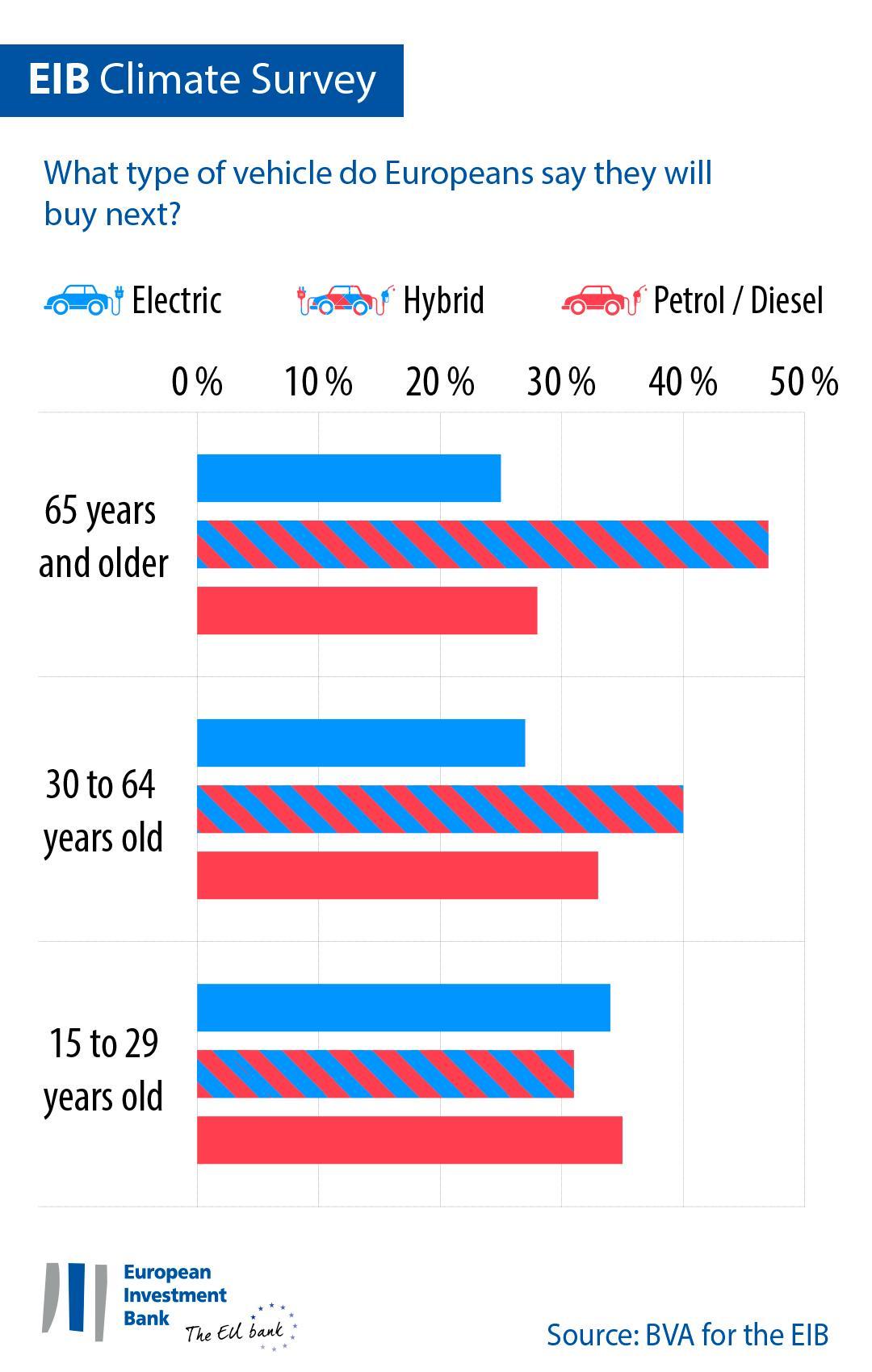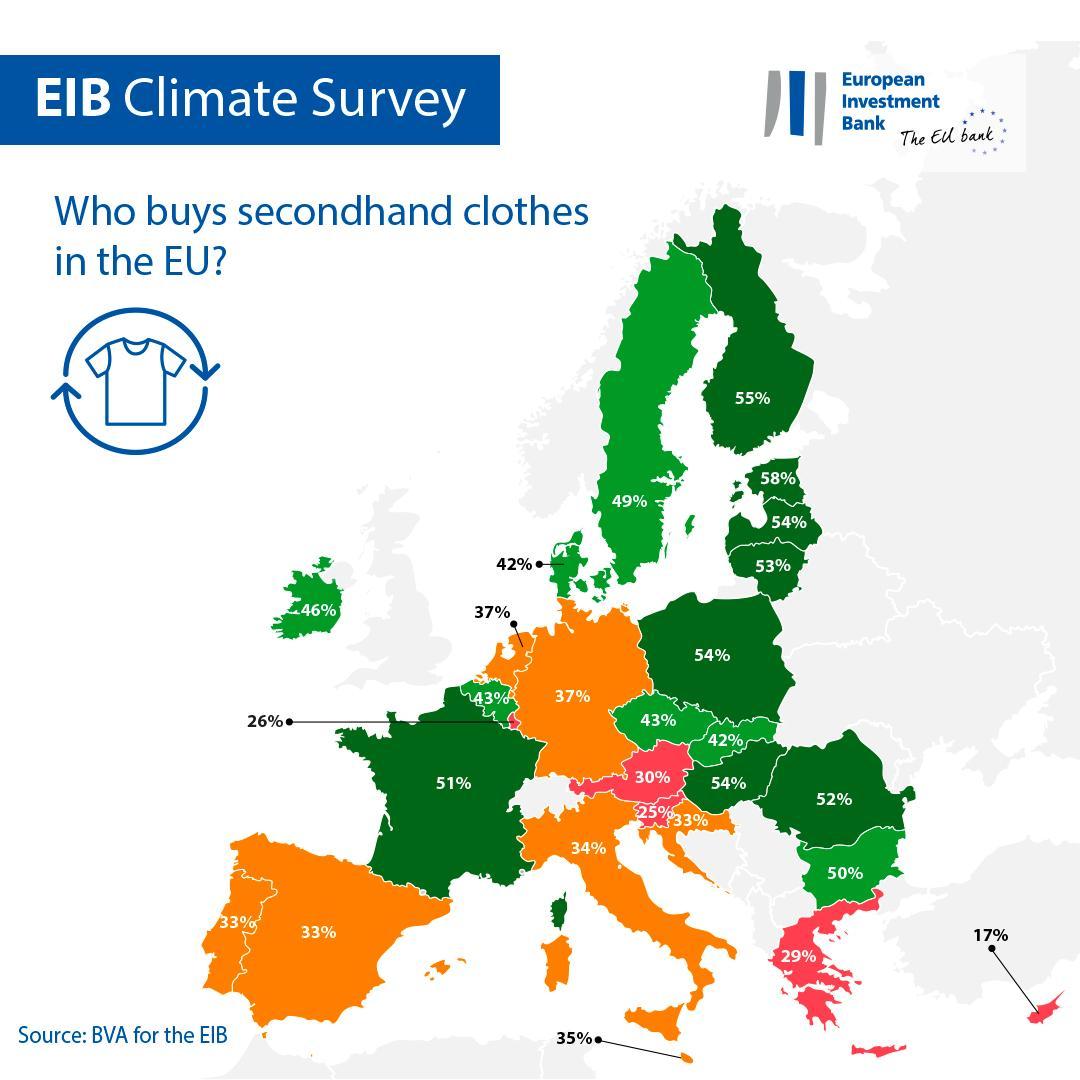- en
67% of Europeans will opt for a hybrid or electric vehicle as their next purchase, says EIB survey
Climate change is the most constant and the most discussed issue over the past few decades. Many countries take this problem seriously and have already started replacing their energy sources with newer, alternative ones. Through this process of exploring and developing new green technology, electric cars were more widely presented to the market. Since everyday life is getting faster each day, this solution is beneficial and many countries recognized it.
European Union set ambitious goal for the future: completely climate-neutral economy and lifestyle by 2050. Having this goal in mind, the plan is to have at least 30 million electric vehicles (EVs) on the streets by the year 2030. This presents an enormous enhancement for the European Union, which now only fields around 1.4 million EVs. In order for this plan to be realized, many member states need to speed-up their development of this sphere through set of regulations and targets to divert everyone in this direction.
When asked about future car purchases, 67% of European car buyers say they will either buy a hybrid or an electric vehicle. This figure is 34 points higher than the percentage of European car buyers who said they would buy a diesel or petrol vehicle (33%). More specifically, 39% would purchase a hybrid vehicle and 28% would opt for an electric vehicle.
In general, European car buyers tend to favour hybrid vehicles (39%), while petrol or diesel vehicles are ranked second (33%) and electric cars come third (28% state they would purchase an electric car). While Chinese car buyers are the most inclined to buy an electric car (44%), Americans would opt first for a hybrid vehicle (38%), followed by a petrol or diesel vehicle (33%), then an electric car (29%).
Within the European Union, car buyers older than 65 are particularly interested in purchasing a hybrid vehicle (47%), while younger respondents (15-29 year-olds) consider a hybrid vehicle to be the least favourable option (31%). Young Europeans say they are slightly more likely to opt for a petrol or diesel vehicle (35%) or an electric car (34%) instead.
Only a minority of the overall EU population (13%) say they do not have a vehicle now and are not planning to buy one.
Climate protection versus flying for holidays
67% of Europeans say they consider climate change when choosing their holiday destination (nine points above the figure for Americans). This concern is even stronger amongst people younger than 30 (69% say they consider climate change when planning their holidays). However, a majority of young Europeans (52%, compared to 37% for people aged 30-64 and 25% for people aged 65 and above) say they will fly for their summer holidays in 2022. More than one-quarter of young people (27%, compared to 17% for people aged 30-64 and 12% for people aged 65 and above) say they will fly to a faraway destination.
Shopping for clothes, voting, deciding on a bank: how climate considerations affect people’s decisions
42% of Europeans say they already buy second-hand clothes instead of new ones. Women are more likely to do so than men (48% for women, 34% for men). This practice is particularly popular amongst 15-29 year-olds (54%), while the figure drops 26 points for people above 65 (28%).
Overall, 45% of Europeans consider climate change when they choose their bank or need to invest savings. This choice is stronger among Europeans between 15-29 year-olds (50%), but decreases with age (45% for the 30-64 year-olds and 40% for people above 65).
When it comes to voting, 70% of Europeans say they take climate change into account.
“Despite some clear differences between age categories, French people are increasingly changing their mobility and consumption habits in a more responsible and sustainable manner to tackle climate change. These changes in individual behaviour show that people from all generations are willing to make stronger commitments in their daily lives to help mitigate the climate crisis. These desires have been voiced during COP26. They are a clear indicator that we need to further our efforts to support the green transition. As the EU climate bank, the role of the EIB is to finance innovative projects that provide practical and affordable solutions for more sustainable living and that will help build a decarbonised future for all.”
EIB Vice-President Ambroise Fayolle
Source: EIB

















